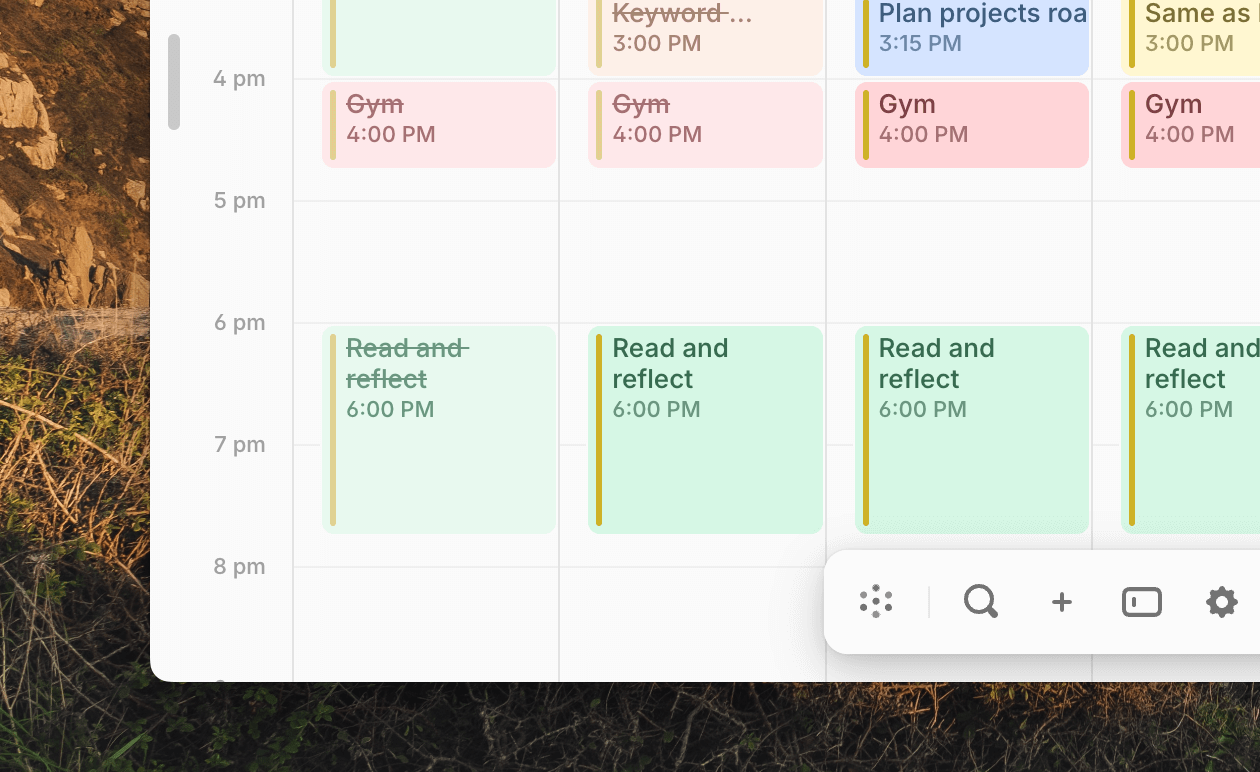After being stuck in traffic behind a massive convoy of cars, I finally see a long stretch of open road. There are vehicles but far away, and the road looks sparsely populated.
I gently accelerate, now comfortably cruising at 70–80 KM/h. I can feel the motion, the excitement of driving, and the feeling that I'm going somewhere and not “brake” dancing in the traffic.
Alas, this happy feeling, this rush of sitting inside a metal capsule zooming through spacetime, gets cut short by a fast-approaching speed breaker on my path.
I slow down, lose momentum, cross the speed breaker and wait for the next stretch of traffic-free road. I hate it when this happens, but I also understand the need.
Speed breakers, although a killjoy in driving, keep us safe from accidents and enable us to drive further towards our destination. We slow down, look around us to gauge safety, and slowly regain momentum.
Looking at my weekly calendar, I couldn't help but notice a sizeable intentional gap between the events of the day that resembles a metaphorical speed breaker:

From morning to late afternoon, I'm in constant go-go mode. There is a bucket of things to do and too little time to do them.
But in this flurry of getting things done, I look forward to this one big speed breaker in my schedule. This break brings my work to a halt and allows me to look around, reflect on my progress, and, most importantly, catch a breath from the constant juggling of tasks I've been doing since morning.
During this time, I relax, make some tea, reflect upon the day, and then enjoy a break from the day's work with my wife before I move on to my evening reading session.
When I first designed my weekly schedule, I was mindful of adding this generous gap towards the end of the day to help me wind down after what would be a productive day. It was a non-negotiable chunk of free time that I had to have in my daily schedule.
Productivity-wise, this gap would seem like an utter waste of valuable waking hours, but it is crucial to preserve my long-term sanity.
I could allocate a task to every free minute of my work day, progress fast, and then burn out after a few weeks, or, worse, realise that I'd been moving in the wrong direction. Or, I could slow down, step back, relax, and check in with myself to ensure I progress in a meaningful direction.
The latter looks more sensible.
It's 2:51 PM on a Tuesday when I'm writing this Fireside reflection, and I'm looking forward to today's speed breaker in my schedule.
Are you excited for yours, too?



 In-depth articles, series and guides
In-depth articles, series and guides
